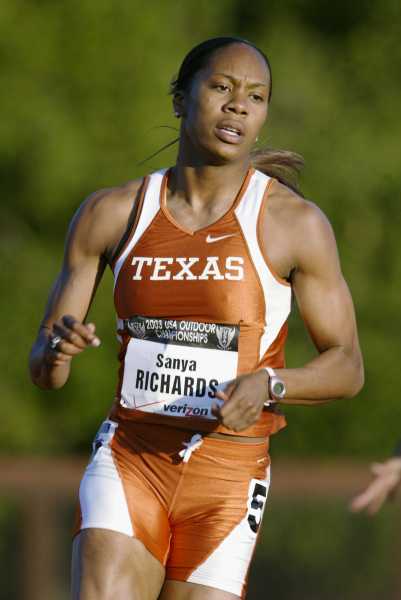
Olympic champion Sanya Richards-Ross is an author, entrepreneur, social media influencer, and motherhood blogger. But before all that, she was a proud University of Texas Longhorn. In the early 2000s, the track and field star competed for UT where, for generations, students have stood up at sporting events to belt out “The Eyes of Texas,” an unofficial fight song.
Richards-Ross describes “Eyes” as prayer-like—a longstanding tradition ingrained into the very fiber of student life on campus and beyond (alum Matthew McConaughey performed it for Jimmy Fallon just last year). The song is also, according to a statement posted on UT’s website, deeply rooted in racism.
Below, in her own words, Richards-Ross on why banning one of her alma mater’s most time-honored traditions could be the catalyst for a long overdue racial reckoning in sports.
You never forget the first time you hear “The Eyes of Texas.” For me, it was August 2002 at my very first University of Texas football game. The song, UT’s unofficial anthem, gets played at the start and end of every game. If football is like a religion in Texas, then “The Eyes of Texas” is something close to a prayer. Everyone on campus knows it by heart.
There must have been 90,000 people in the stadium that day singing in perfect unison. I was a freshman and I’d never felt so connected to something, so empowered. I joined in.
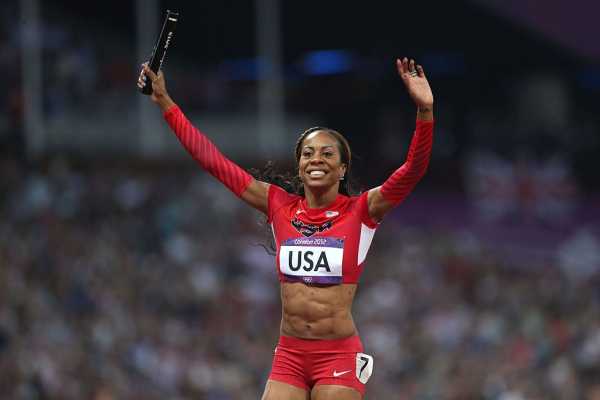
Richards-Ross after winning the 4 x 400 meter relay race at the 2012 Olympic Games in London.
“God,” I thought to myself. “I’m so proud to be a Longhorn.”
Back then I had no idea its lyrics are based on a quote from Robert E. Lee—or that it was performed at minstrel shows around campus. I wouldn’t find that out for almost a decade, and when I did, I was furious.
Since the killing of George Floyd, there’s been a long overdue reckoning about the celebration of racist symbols in America—from memorials to pancake mixes. Confederate statues are being torn down, sports mascots changed, and streets renamed. The call to action has reached UT, where student-athletes—including football players and track stars—are leading a movement to ban “The Eyes of Texas.”
I stopped singing it a long time ago. Now it’s time we all do the same.

Richards-Ross with her husband, Aaron Ross, and their son, Deuce.
I really loved the two years I spent at UT. I broke the school’s record in the 400 meter dash. I became a five-time NCAA Champion and an 11-time All-American. It’s where I met my future husband, Aaron Ross, who played UT football and went on to win two Super Bowls with the New York Giants. Our beautiful son, Deuce, is almost 3 years old now.
Aaron was actually the one who first told me about the racist history behind “The Eyes of Texas.” We were on the sidelines of a UT football game and the whole thing felt disingenuous. I looked at the young men on the field, most of them Black. Then I turned around and looked into the VIP suites, where the mostly white donors and university officials sit.
Did they know how hurtful the song is? Did they even care?
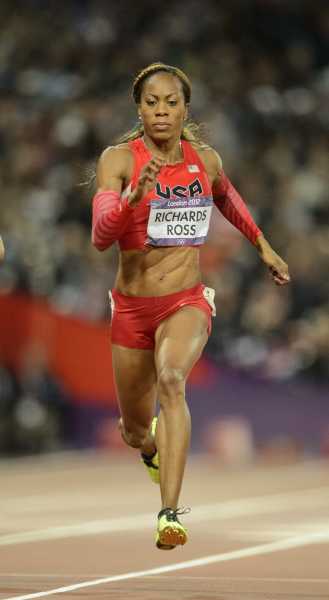
Richards-Ross running the 200 meter dash semi-finals at the 2012 Olympic Games in London.
We talk a lot about correcting systemic racism, but sometimes we need to stop and understand what these systems are—or who they are. The people in those VIP suites have the power to be on the right side of history, but the corrections haven’t been made.
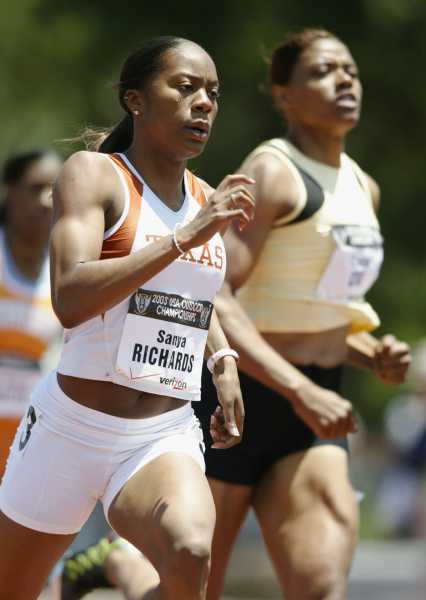
Richards-Ross running the 400 meter dash for UT at the USA Outdoor Track and Field Championships in 2003.
Why, because of tradition?
The inaction sends a very clear signal: athletes, especially Black athletes, aren’t valuable.
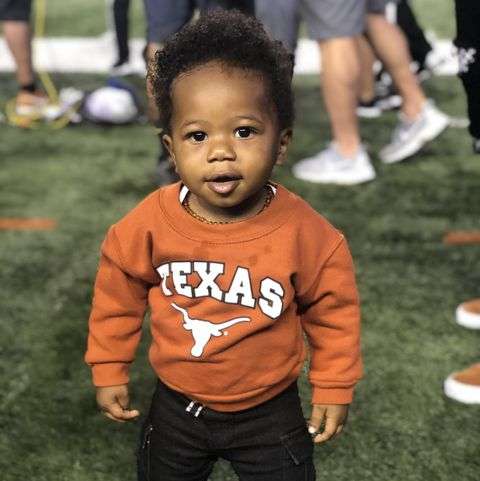
Deuce on the sidelines of a UT game.
I no longer view the prejudices that plagues our country just through the lens of being a Black athlete, which I now realize comes with its own perks and privileges. Now I see everything as a Black mother and the hope for change has become more desperate.
I look at my baby boy every day and think to myself about what amazing potential he has. I don’t know if he’ll walk in our footsteps, on many days it certainly looks like it, but my hope is that he won’t be praised and lauded for his athletic prowess without first being valued as a Black man.
[Editor’s note: UT spokesperson J.B. Bird told ELLE.com via email that UT’s Interim President Jay Hartzell “is continuing important conversations with students—including leaders of Black student organizations and student athletes—as well as faculty, staff, alumni and other community members to hear their concerns and ideas directly. We are committed to listening, learning and coming together as a community to drive meaningful change on our campus and in our culture to make The University of Texas an even greater place.”]
Источник: www.elle.com







